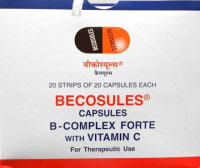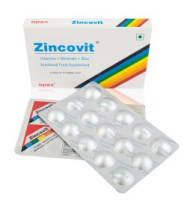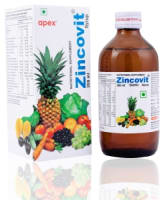USED FOR:
Thrombophlebitis
COMPOSITION:
Benzyl Nicotinate Topical (2mg)
Heparin Topical (50IU)

No interaction found

WEIGH RISKS VS BENEFITS
Thrombophob Ointment may be unsafe to use during pregnancy.Animal studies have shown adverse effects on the foetus, however, there are limited human studies. The benefits from use in pregnant women may be acceptable despite the risk. Please consult your doctor.

Thrombophob Ointment is probably safe to use during lactation. Limited human data suggests that the drug does not represent a significant risk to the baby.

It is not known whether Thrombophob Ointment alters the ability to drive. Do not drive if you experience any symptoms that affect your ability to concentrate and react.

Thrombophob Ointment is probably safe to use in patients with kidney disease. Limited data available suggests that dose adjustment of Thrombophob Ointment may not be needed in these patients. Please consult your doctor.

Thrombophob Ointment is probably safe to use in patients with liver disease. Limited data available suggests that dose adjustment of Thrombophob Ointment may not be needed in these patients. Please consult your doctor.
Uses of Benzyl Nicotinate Topical
Benzyl Nicotinate Topical is used in the treatment of thrombophlebitis.
How to use Benzyl Nicotinate Topical
This medicine is for external use only. Use it in the dose and duration as advised by your doctor. Check the label for directions before use. Clean and dry the affected area and gently massage the ointment. Wash your hands after applying, unless hands are the affected area.
How Thrombophob Ointment works
Benzyl nicotinate belongs to the class of medications called as vasodilators. It works by dilating the blood vessels and together with heparin (which dissolves/ prevents the formation of blood clots), increases the blood flow to the affected area thereby relieving the associated symptoms.
Expert advice for Benzyl Nicotinate Topical
Avoid contact with the eyes, mouth, and nose and rinse thoroughly in case of accidental contact or seek medical help in case of ingestion.
Do not apply the ointment on broken or injured skin.
Inform your doctor if you have any bleeding disorders, any severe kidney, liver or heart disorders.
Regular monitoring of platelet counts may be required to prevent thrombocytopenia (abnormally low number of cells (platelets) that are required for blood to clot.
Tell your doctor if you are pregnant, planning to become pregnant or are breastfeeding.
Uses of Heparin Topical
Heparin Topical is used in thrombophlebitis, piles and anal fissure.
How to use Heparin Topical
This medicine is for external use only. Use it in the dose and duration as advised by your doctor. Check the label for directions before use. Clean and dry the affected area and gently massage the ointment. Wash your hands after applying, unless hands are the affected area.
How Thrombophob Ointment works
Heparin Topical works by decreasing inflammation, relieving pain and itching.
Expert advice for Heparin Topical
Tell your doctor if your injury or illness does not improve, or gets worse after heparin treatment.
Do not use gel/ ointment on broken skin or sensitive body parts (nose, mouth, eyes, or genital regions).
Avoid direct contact of gel/ ointment with your eyes. In case of direct contact, wash your eyes with water immediately and seek immediate medical attention.
Tell your doctor if you are pregnant, planning to become pregnant or are breastfeeding.
Do not use if you are allergic to heparin or any of its ingredients.
Do not use by Children < 5 years.
Q. Is heparin a protein, anticoagulant (blood thinner), thrombolytic agent (clot buster), or antiplatelet (antiaggregant)?
Heparin is not a protein, thrombolytic agent, or antiplatelet drug. It is a glycosaminoglycan carbohydrate and used as an anticoagulant
Q. Does heparin affect blood pressure or sleep?
Heparin is not reported to affect blood pressure or sleep. Consult your doctor if you experience such symptoms
Q. Does heparin affect platelets, INR (international normalized ratio), or PTT (partial thromboplastin time)?
Heparin affects INR (used to monitor the effectiveness of the anticoagulant), and PTT (blood test determines the blood clotting time), both of which increase as the ability of blood to clot decreases due to heparin. Heparin may also cause reduced blood platelet count
Q. Is heparin made from pork?
Yes, it is obtained from the intestine of the pig (porcine) or lungs of cattle (bovine), when these animals are slaughtered for meat
Q. Is heparin unfractionated?
There are two forms of heparin used as anti-coagulants; fractionated and low molecular weight heparins. Please see the product leaflet for more information
Q. Is heparin present in human body?
Yes, it is produced in the body by mast cells
Q. Does heparin come in pill form?
No, it is available as gel, ointment, and an injection form.


 Thrombophob Ointment
Thrombophob Ointment  Bookmark
Bookmark





















